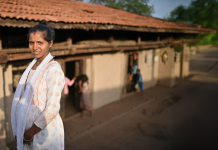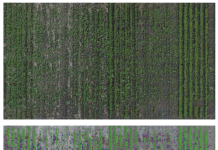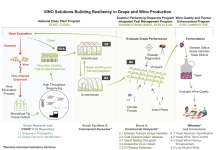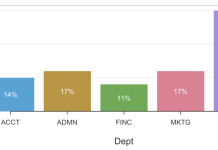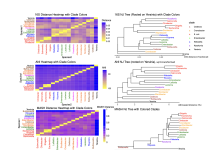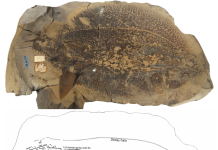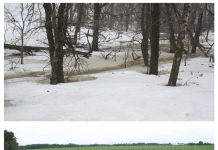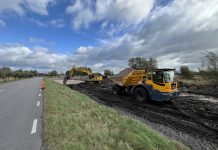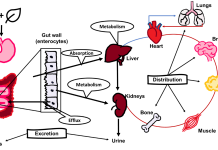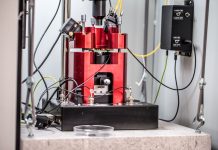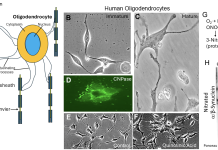Open Access Government produces compelling and informative news, publications, eBooks, and academic research articles for the public and private sector looking at health, diseases & conditions, workplace, research & innovation, digital transformation, government policy, environment, agriculture, energy, transport and more.
Home 2025
Archives
Endothelial – The final frontier to reduce preterm birth and death from sepsis
Each year, around 15 million babies are born prematurely, with nearly one million dying soon after due to complications. Maternal mortality remains high, particularly in low-resource settings. This article describes how assessing endothelial integrity and function could help identify at-risk pregnancies to prevent adverse outcomes.
Improved herbicide stewardship with remote sensing and machine learning decision-making tools
Weeds pose the most persistent and costly threat to crop production in Canada, driving widespread herbicide use and accelerating the rise of herbicide-resistant species. This article explores how emerging AI- and trait-based decision tools can transform weed management and usher in a new era of precise, sustainable herbicide stewardship.
Afrikan studies and research in the human sciences
Discussing Afrikan studies, Kimani S. K. Nehusi highlights the importance of an Afrocentric perspective that positions Afrikans as active participants in their cultures and histories. He introduces the concept of the Afrikan Ancestral Land Complex (AALC), which includes the essential values, knowledge, and rituals that sustain Afrikan identity and community cohesion.
Exploring genetic tools in environmental microbes: Applications in extracellular electron transfer
Arpita Bose and Zhecheng Zhang explore genetic tools in environmental microbes, citing applications in extracellular electron transfer/
Resiliency strategies to overcome challenges facing the Canadian grape and wine sector
Resiliency strategies to overcome challenges facing the Canadian grape and wine sector.
Professional, interactive data visualization for everyone: lessR
David Gerbing, Ph.D, from Portland State University, explores professional, interactive data visualization for everyone through lessR.
Paulo Freire, social justice, and the democratic possibilities of education
Stephanie Schneider from SUNY Old Westbury examines Paulo Freire’s fascinating work on social justice, and the democratic potential of education.
Lost in taxonomy: Why bacterial type strains are the anchor we need
Professor David Ussery and Dr. Ake Vastermark, bioinformatics and microbial taxonomy experts at Oklahoma State University, introduce the challenges of defining bacterial species in an era of rapidly expanding genomic data. Their article highlights how modern genome-based tools can bring clarity to this evolving field.
Cladoselache, a puzzling ancient shark-like fish
Loren E. Babcock, Professor in the School of Earth Sciences at The Ohio State University, introduces research on Cladoselache, a puzzling ancient shark-like fish.
Legacy asbestos: An ongoing public health risk
Jean C. Pfau and Tracy McNew from the Center for Asbestos-Related Disease address the legacy of environmental asbestos, which continues to pose a public health risk.
Why riparian buffers fail to filter agricultural runoff contaminants
In this article, Dr David Lobb of the University of Manitoba examines why riparian buffers often fail to filter contaminants from agricultural runoff, particularly in cold climate regions.
The benefits of harvest residue and vegetation control on conifer seedling survival and growth
Mark Kimsey, the Director of the Intermountain Forestry Cooperative, discusses the benefits of harvest residue and vegetation control on conifer seedling survival and growth.
Sudbury peatland restoration from metal pollution
Professor Pete Whittington discusses efforts to restore metal-contaminated peatlands in Sudbury, Ontario, which were heavily affected by mining since the 1880s.
Vellinge reinvents flood protection with nature-based innovation
Nature meets engineering in Vellinge’s innovative flood defence, setting a new standard for sustainable coastal protection, Anders Purcell, Project Manager at Vellinge Municipality explains.
The future of brain interfacing
Neural Speech Inc. aims to provide a link to the outside world for people who are unable to communicate. CEO and Chief Scientist, Philip Kennedy, explains the potential opportunities associated with brain interfacing.
Understanding botanical-drug interactions
With a specific focus on pharmacokinetic and pharmacodynamic mechanisms, Dr Erin C Berthold discusses the interactions between botanical and herbal supplements and conventional pharmaceuticals, highlighting the urgent need to examine these interactions for public health and patient safety.
The legacy of bias: Building the foundation for sex and gender-based medicine
Alyson J. McGregor, Associate Dean at the University of South Carolina School of Medicine, highlights the historical bias present in medical research; the exclusion of which has created a significant knowledge gap that impacts the diagnosis and treatment of various health conditions.
Atomic-Force Microscopy (AFM) data: Are these images real?
Focusing on atomic-force microscopy (AFM) data, Nancy A. Burnham examines the challenges in image processing for scientific research, highlighting how different techniques yield varied images and clearer views of key features. The choices researchers make during processing can therefore lead to differing conclusions, underscoring the importance of critical evaluation in scientific publications.
iPSCs and NSCs model newborn brain injury
This article discusses research by Dr. Lee J. Martin and his team on HIE, a leading cause of neonatal mortality. They use human induced pluripotent stem cells (iPSCs) and neural stem cells (NSCs) and emphasize the vulnerability of oligodendrocytes, sharing how these cells can accumulate toxic misfolded proteins, potentially causing severe neural damage and long-term cognitive disabilities in affected infants.
Youth suicide: An overview
Professor Deborah Winders Davis from the University of Louisville School of Medicine discusses the prevalence, risk factors, and stigma associated with youth mental health and suicide, emphasizing the importance of raising awareness and developing intervention strategies to tackle the critical issues facing young people.

